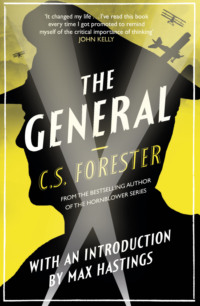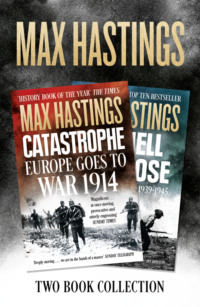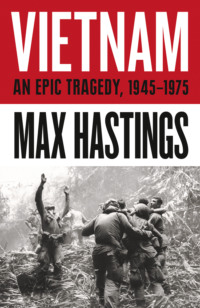
Полная версия
Finest Years: Churchill as Warlord 1940–45
Churchill landed back at Hendon after a two-and-a-half-hour flight. At Downing Street he learned that President Roosevelt had responded to an earlier French appeal with private promises of more material aid, and declared himself impressed that Reynaud was committed to fight on. Churchill told the war cabinet that such a message came as close to an American declaration of war as was possible without Congress. This was, of course, wildly wishful thinking. Roosevelt, on Secretary of State Cordell Hull’s advice, rejected Churchill’s plea that he should allow his cable to be published.
On 12 June, the 51st Highland Division at Saint-Valery was forced to join a local capitulation by troops of the French Tenth Army, to which the British formation was attached. Had an order been given a few days earlier, it is plausible that the troops could have been evacuated to Britain through Le Havre. Instead, they became a sacrifice to Churchill’s commitment to be seen to sustain the campaign. That same day, Gen. Sir Alan Brooke arrived with orders to lead British forces to the aid of the French. Reinforcements were still landing at the Brittany ports on the 13th.
When Ismay suggested that British units moving to France should hasten slowly, Churchill said: ‘Certainly not. It would look very bad in history if we were to do any such thing.’ This was of a piece with his response to chancellor Kingsley Wood’s suggestion a few weeks later, that since Britain was financially supporting the Dutch administration in exile, in return the government should demand an increased stake in the Royal Dutch Shell oil company. ‘Churchill, who objected to taking advantage of another country’s misfortunes, said that he never again wished to hear such a suggestion.’ At every turn, he perceived his own words and actions through the prism of posterity. He was determined that historians should say: ‘He nothing common did or mean upon that memorable scene.’ Indeed, in those days Marvell’s lines on King Charles I’s execution were much in his mind. He recited them repeatedly to his staff, and then to the House of Commons. Seldom has a great actor on the stage of human affairs been so mindful of the verdict of future ages, even as he played out his own part and delivered his lines.
On 14 June, the Germans entered Paris unopposed. Yet illusions persisted in London that a British foothold on the Continent might even now be maintained. Jock Colville wrote from Downing Street that day: ‘If the French will go on fighting, we must now fall back on the Atlantic, creating new lines of Torres Vedras behind which British divisions and American supplies can be concentrated. Paris is not France, and…there is no reason to suppose the Germans will be able to subdue the whole country.’ Colville himself was a very junior civil servant, but his fantasies were fed by more important people. That evening, Churchill spoke by telephone to Brooke in France. The prime minister deplored the fact that the remaining British formations were in retreat. He wanted to make the French feel that they were being supported. Brooke, with an Ulster bluntness of which Churchill would gain much more experience in the course of the war, retorted that ‘it was impossible to make a corpse feel’. After what seemed to the soldier an interminable and absurd wrangle, Churchill said: ‘All right, I agree with you.’
In that conversation, Brooke saved almost 200,000 men from death or captivity. By sheer force of personality, not much in evidence among British generals, he persuaded Churchill to allow his forces to be removed from French command and evacuated. On the 15th, orders were rushed to Canadians en route by rail from the Normandy coast to what passed for the battlefront. Locomotives were shunted from the front to the rear of their trains, which then set off once more for the ports. At Brest, embarking troops were ordered to destroy all vehicles and equipment. However, some determined and imaginative officers laboured defiantly and successfully to evacuate precious artillery. For the French, Weygand was further embittered by tidings of another British withdrawal. It seems astonishing that his compatriots did nothing to impede the operation, and even something to assist it.
Much has been written about Churchill’s prudence in declining to reinforce defeat by dispatching further fighter squadrons to France in 1940. The contrary misjudgement is often passed over. Alan Brooke understood the prime minister’s motive – to demonstrate to the French that the British Army was still committed to the fight. But he rightly deplored its futility. If Dunkirk represented a miracle, it was scarcely a lesser one that two weeks later it proved possible to evacuate almost all of Brooke’s force to Britain through the north-western French ports. There were, in effect, two Dunkirks, though the latter is much less noticed by history. Churchill was able to escape the potentially brutal consequences of his last rash gesture to Reynaud, because of Brooke’s resolution and the Germans’ preoccupation with completing the destruction of the French army. Had not providence been merciful, all Brooke’s men might have been lost, a shattering blow to the British Army’s prospects of reconstitution.
On 15 June, at Churchill’s behest Dill telephoned Brooke on a weak, crackling line, and told him to delay evacuation of 52nd Division from Cherbourg. In London there were renewed hopes of clinging to a foothold in France, though these had no visible foundation in reality. The French anyway discounted all such British aspirations. Brooke was exasperated. He told the CIGS: ‘It is a desperate job being faced with over 150,000 men and a mass of material, ammunition, petrol, supplies etc, to try to evacuate or dispose of, and nothing to cover this operation except the crumbling French army…We are wasting shipping and precious hours.’ Next day, London grudgingly agreed that the 52nd Division could continue returning to Britain. Yet administrative confusion persisted. Some troops were embarked at Le Havre for Portsmouth, only to be offloaded at Cherbourg and entrained for Rennes. A ship arrived at Brest on the morning of the 18th, bearing artillery and ammunition from England. At a dozen north-west French ports, tens of thousands of British troops milled in chaos, many of them lacking orders and officers.
German preoccupation with the French army alone made it possible to get the men and a few heavy weapons away, amid chaos and mismanagement. There were skirmishes between British and enemy forces, but no fatal clash. Between 14 and 25 June, from Brest and Saint-Nazaire, Cherbourg and lesser western French ports, 144,171 British troops were successfully rescued and brought home, along with 24,352 Poles and 42,000 other Allied soldiers. There were losses, notably the sinking of the liner Lancastria at a cost of at least 3,000 lives;* but these were negligible in proportion to the forces at risk – two-thirds of the numbers brought back from Dunkirk.
It is hard to overstate the chaos of British command arrangements in France during the last three weeks of the campaign, even in areas where formations were not much threatened by the Germans. Two trainloads of invaluable and undamaged British tanks were gratuitously abandoned in Normandy. ‘Much equipment had been unnecessarily destroyed,’ in the angry words of Maj.Gen. Andrew McNaughton, commanding 1st Canadian Division. Though the war had been in progress for almost nine months, Lt.Gen. Sir Henry Karslake, commanding at Le Mans until Brooke’s arrival, wrote in a report: ‘The lack of previous training for our formations showed itself in many ways.’ Men of the 52nd Division arrived in France in June with equipment issued two days earlier, never having fired their anti-tank guns or indeed seen a tank. Karslake was appalled by the perceived indiscipline of some regular units, even before they were engaged: ‘Their behaviour was terrible!’ Far more vehicles, stores and equipment could have been evacuated, but for administrative disorder prevailing at the ports, where some ships from England were still being unloaded while, at nearby quays, units embarked for home. The commitment to north-west France represented a serious misjudgement by Churchill, which won no gratitude from the French, and could have cost the Allies as many soldiers as the later disasters in Greece, Crete, Singapore and Tobruk put together.
While the horror of Britain’s predicament was now apparent to all those in high places and to many in low, Churchill was visibly exalted by it. At Chequers on the warm summer night of 15 June, Jock Colville described how tidings of gloom were constantly telephoned through, while sentries with steel helmets and fixed bayonets encircled the house. The prime minister, however, displayed the highest spirits, ‘repeating poetry, dilating on the drama of the present situation…offering everybody cigars, and spasmodically murmuring: “Bang, bang, bang, goes the farmer’s gun, run rabbit, run rabbit, run, run, run.” ’ In the early hours of morning, when US ambassador Joseph Kennedy telephoned, the prime minister unleashed upon him a torrent of rhetoric about America’s opportunity to save civilisation. Then he held forth to his staff about Britain’s growing fighter strength, ‘told one or two dirty stories’, and departed for bed at 1.30, saying, ‘Goodnight, my children.’ At least some part of this must have been masquerade. But it was a masquerade of awesome nobility. Churchill’s private secretary Eric Seal thought him much changed since 10 May, more sober, ‘less violent, less wild, less impetuous’. If this was overstated, there had certainly been an extraordinary accession of self-control.
On 16 June the war cabinet dispatched a message to Reynaud, now in Bordeaux, offering to release France from its obligation as an ally to forswear negotiations with Germany, on the sole condition that the French fleet should be sailed to British harbours. De Gaulle, arriving in London, was invited to lunch with Churchill and Eden at the Carlton Club. He told the prime minister that only the most dramatic British initiative might stave off French surrender. He urged formalising a proposal for political union between France and Britain over which the cabinet had been dallying for days. Amid crisis, these desperate men briefly embraced this fanciful idea. An appropriate message, setting forth the offer in momentous terms, was dispatched to Reynaud. Churchill prepared to set forth once more for France, this time by sea, to discuss a draft ‘Proclamation of Union’. He was already aboard a train at Waterloo with Clement Attlee, Archibald Sinclair and the chiefs of staff, bound for embarkation on a destroyer, when word was brought that Reynaud could not receive them. With a heavy heart, the prime minister returned to Downing Street. It was for the best. The proposal for union was wholly unrealistic, and could have changed nothing. France’s battle was over. Reynaud’s government performed one last service to its ally: that day in Washington, all the French nation’s American arms contracts were formally transferred to Britain.
During the night, it was learned at Downing Street that Reynaud had resigned as prime minister and been replaced by Marshal Pétain, who was seeking an armistice. Pétain’s prestige among the French people rested first upon his defence of Verdun in 1916, and second upon an ill-founded belief that he possessed a humanity unique among generals, manifested in his merciful handling of the French army during its 1917 mutinies. In June 1940 there is little doubt that Pétain’s commitment to peace at any price reflected the wishes of most French people. Reynaud, however, probably committed a historic blunder by agreeing to forsake his office. Had he and his ministerial colleagues chosen instead to accept exile, as did the Norwegian, Belgian and Dutch governments, he could have prevented his nation’s surrender of democratic legitimacy, and established French resistance to tyranny on strong foundations in London. As it was, he allowed himself to be overborne by the military defeatists, led by Pétain and Weygand, and denied himself a famous political martyrdom.
A British sergeant named George Starr, who escaped from the Continent through Dunkirk, belatedly reached home in Yorkshire on 18 June. He found his father listening to the radio announcement of France’s surrender. The Starr family had for many years run a travelling circus on the Continent. George’s father switched off the set, shook his head and said: ‘The French will never forgive us for this.’ His son could not understand what he meant. Later in the war, however, George Starr spent three years as a British agent with the French Resistance. He enjoyed ample opportunity to explore the sense of betrayal harboured by many French people towards Britain, which never entirely faded.
De Gaulle, Reynaud’s army minister, almost alone among prominent Frenchmen chose to pitch camp in London, and secured the evacuation of his wife. The war cabinet opposed his request that he should be permitted to broadcast to his people on the BBC. Churchill however, urged on by Spears, insisted that the renegade – for so De Gaulle was perceived by many of his own people – should be given access to a microphone. The general’s legal adviser, Professor Cassin, enquired of his new chief what was the status of his embryo movement in Britain. De Gaulle answered magnificently: ‘We are France!…The defeated are those who accept defeat.’ The general had an answer, too, to the problem of establishing his own stature: ‘Churchill will launch me like a new brand of soap.’ The British government indeed hired an advertising agency, Richmond Temple, to promote Free France. De Gaulle would need all the help he could get. Few Frenchmen, even those evacuated to Britain from the battlefield, were willing to fight on if their government quit. De Gaulle asked the captain of the French destroyer Milan, which carried him across the Channel, if he would serve under British colours. The naval officer answered that he would not. Most of his compatriots proved like-minded. ‘Mr Churchill finds that there are not enough French and German bodies to satisfy him,’ declared a sulphurous front-page editorial in the Paris paper Le Matin, in one of its first issues after the surrender. ‘We ask if the British prime minister has lost his head. If so, what a pity that our ministers did not perceive it sooner.’ The paper went on to denounce De Gaulle, and to accuse the British of fomenting revolt in France’s overseas empire.
In 1941 and 1942, the prime minister would be obliged to preside over many British defeats, and indeed humiliations. Yet no trauma was as profound, no shock as far-reaching, as that which befell him in his first weeks of office, when the German army destroyed France as a military power, and swept the British from the Continent. Henceforward, the character of the war thus became fundamentally different from that of 1914–18. All assumptions were set at naught upon which Allied war policy, and Churchill’s personal defiance of Hitler, had been founded. Whatever Britain’s continuing capabilities at sea and in the air, since September 1939 it had been taken for granted that the British Army would confront the Nazi legions alongside the French, in the frankly subordinate role demanded by its inferiority of numbers – just nine divisions to ninety-four French on the western front. The British Army could never alone aspire to dispute a battlefield with the Wehrmacht, and this knowledge dominated British strategy.
It was hard for many people, even the highest in the land, to absorb the scale of the disaster which had befallen Allied arms, and which now threatened to overwhelm Britain. Alan Brooke was struck by a Churchillian observation about human nature. The prime minister said that the receptive capacity of a man’s mind was like a three-inch pipe running under a culvert. ‘When a flood comes the water flows over the culvert whilst the pipe goes on handling its 3 inches. Similarly the human brain will register emotions up to its “3 inch limit” and subsequent additional emotions flow past unregistered.’ So it now seemed to Brooke himself, and to a host of others. They perceived that a catastrophe was unfolding, but their hearts could not keep pace with the signals from their brains about its significance. Harold Nicolson wrote in his diary on 15 June: ‘My reason tells me that it will now be almost impossible to beat the Germans, and that the probability is that France will surrender and that we shall be bombed and invaded…Yet these probabilities do not fill me with despair. I seem to be impervious both to pleasure and pain. For the moment we are all anaesthetised.’
Another eye-witness, writer Peter Fleming, then serving as an army staff officer, identified the same emotional confusion: ‘This period was one of carefree improvisation as far as most civilians were concerned. It was as though the whole country had been invited to a fancy-dress ball and everybody was asking everybody else “What are you going as?” A latent incredulity, and the fact that almost everybody had more than enough to do already, combined to give problems connected with invasion the status of engrossing digressions from the main business of life…The British, when their ally was pole-axed on their doorstep, became both gayer and more serene than they had been at any time since the overture to Munich struck up in 1937.’
British casualties in France were large in relation to the size of the BEF, but trifling by comparison with those of the French, and with the infinitely more intense struggles that would take place later in the war. The army lost just 11,000 killed and missing, against 120,000 French dead. In addition, 14,070 British wounded were evacuated, and 41,030 BEF prisoners fell into German hands. The loss of tanks, artillery and weapons of all kinds was, of course, calamitous. It is a familiar and ill-founded cliché that the 1940 British Expeditionary Force was ill-equipped. In reality it was much better supplied with vehicles than the Germans, and had good tanks if these had been imaginatively employed. When Hitler’s Field Marshal Fedor von Bock saw the wreckage at Dunkirk, he wrote in astonishment: ‘Here lies the material of a whole army, so incredibly well-equipped that we poor devils can only look on with envy and amazement.’ The BEF was driven from Dunkirk after relatively light fighting and very heavy retreating, because it lacked mass to change the outcome of the campaign once the French front was broken, and was outfought by German formations with better leadership, motivation and air support. The British Army was now, for all practical purposes, disarmed. Almost a thousand RAF aircraft were gone, half of these fighters.
But Britain had human material to forge a new army – though not one that alone could ever be large enough to face the Germans in a Continental war – if only time was granted before it must fight again. An American correspondent reported home that Londoners received news of the French surrender in grim silence rather than with jokes or protestations of defiance. The Battle of France was over, Churchill told the British people on the following night. The Battle of Britain was about to begin. The position of Churchill’s nation on 17 June was scarcely enviable. But it was vastly better than had seemed possible a month earlier, when the BEF faced annihilation.
* Estimates that as many as 8,000 people perished on the Lancastria are rendered implausible by the overall casualty figures for the campaign in France, which show a total British loss of life of only 11,000.
Конец ознакомительного фрагмента.
Текст предоставлен ООО «ЛитРес».
Прочитайте эту книгу целиком, купив полную легальную версию на ЛитРес.
Безопасно оплатить книгу можно банковской картой Visa, MasterCard, Maestro, со счета мобильного телефона, с платежного терминала, в салоне МТС или Связной, через PayPal, WebMoney, Яндекс.Деньги, QIWI Кошелек, бонусными картами или другим удобным Вам способом.







